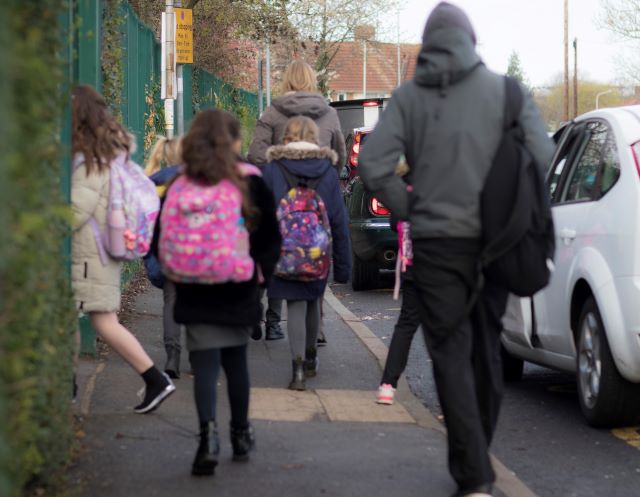Researchers at Reading are helping communities to breathe healthier air by equipping schools and families with tools and skills to identify and tackle air pollution.
More than three million children across the UK are exposed to harmful levels of air pollution while travelling to and from school, with those in the South of England at particular risk. A project led by Dr Hong Yang and Marta O’Brien is now tackling air pollution in Reading and beyond, by engaging school pupils, parents, and teachers as citizen scientists.
The team monitored the air quality in and around the playgrounds and classrooms of four schools to determine levels of air pollution throughout the day. By distributing hand-held equipment to pupils and their parents to use during journeys to and from school, they were also able to track air pollution levels in real time on relevant travel routes.
Using this data together with questionnaire and interview feedback from parents, students, and teachers at the schools, the researchers developed a practical toolkit to help communities consider how to manage and invest in infrastructure that promotes cleaner air.
By working in partnership with local organisations including Reading Borough Council, the team was able to influence policies and practices across the town, while creating new opportunities to extend the project to several other areas in the South of England.
“It’s really interesting to see about how the air pollution that we don’t even see can affect us and how high it can be around schools.” Molly, Geoffrey Field Junior School
Judges’ comment
“A well designed and executed local project that takes a creative and innovative approach to engaging children and parents, including those from disadvantaged communities, and has generated significant impact and engagement with solid plans to extend its reach.”
Team: Hong Yang and Marta O’Brien
In partnership with The Museum of English Rural Life, Reading Borough Council, Alfred Sutton Primary School, Hemdean House School, Oxford Road Community School, Geoffrey Field Junior School
Funded by Research England, Natural Environment Research Council, Community Fund (joint initiative between John Sykes Foundation and University of Reading)
Shortlisted for the University Research Engagement and Impact Awards 2022 (winner)
First published: June 2022

